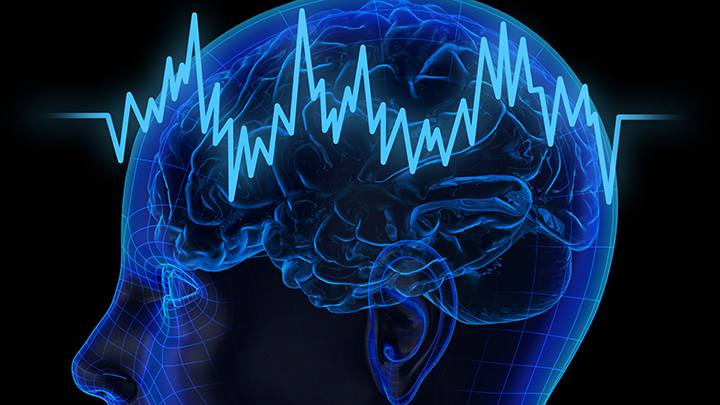Neuroscience
We focus on understanding the underlying pathological mechanisms and the progression of neurodegeneration in Alzheimer’s disease and cerebrovascular disorders, understanding and preventing the loss of function that occurs following traumatic brain injury, and developing insight into how the brain develops.

Alzheimer’s disease
This sub-area spans the molecular understanding of Alzheimer’s disease, a key enzyme – gamma secretase – in the disease, and gene function and beta amyloid metabolism.
View researchers
School of Pharmacy and Biomedical Sciences
Associate Professer Giuseppe Verdile
Associate Professer Verdile is head of the Alzheimer’s disease Research Group. His research focus is the molecular understanding of Alzheimer’s disease, where he utilises in vitro and in vivo models to understand mechanisms underlying the neurodegenerative process in the disease, and how risk factors impact on disease progression.
Dr Imran Khan
Dr Khan recently obtained his PhD in 2017 from the University of Western Australia under the supervision of Associate Professor Giuseppe Verdile and Professor Ralph Martins. His thesis utilises unique tools to study a key enzyme in Alzheimer’s disease, gamma secretase. He is currently a post-doctoral fellow investigating the impact of type 2 diabetes on disease progression.
Associate Professor David Groth
Associate Professor Groth works closely with Associate Professor Verdile, and his expertise in molecular biology and genetics is targeted at understanding gene function and beta amyloid metabolism.
Cerebrovascular Disorders
This sub-area spans how the integrity of brain capillaries influences risk for onset and progression of neurodegenerative disorders, capillary restoration strategies, the role of micro-nutrients in regulating brain capillaries and cognition and the relationships between brain metabolism, redox and ion homeostasis.
View researchers
School of Pharmacy and Biomedical Sciences
Professor John Mamo
Professor Mamo is a Director for the Curtin Health Innovation Research Institute (CHIRI). Professor Mamo is a nutritional physiologist, with substantive research interests in vascular biology dysfunction as it relates to cerebrovascular and cardiovascular disorders. Dr Mamo co-hosts with Dr Ryusuke Takechi a major research program, investigating how integrity of brain capillaries influences risk for onset and progression of neurodegenerative disorders.
Dr Ryusuke Takechi
Dr Takechi is a Senior Research Fellow and has led development of state-of art methodologies to investigate regulation of brain capillaries. Dr Takechi has pioneered capillary restoration strategies as a therapeutic approach to treat major neurodegenerative disorders such as Alzheimer’s disease.
Dr Virginie Lam
Dr Lam is an early career Research Fellow with significant preclinical and clinical expertise investigating the role of micro-nutrients in regulating brain capillaries and cognition. Dr Lam’s recent studies have demonstrated for the first time that elevated levels of some micro-nutrients may be as detrimental to brain capillaries and memory as are deficiencies. Dr Lam has substantial interests in how vitamin D regulates neurovascular integrity and brain function.
Dr Mark Hackett
Dr Hackett’s specific interests are in the relationships between brain metabolism, redox and ion homeostasis, and how these mechanisms influence neurovascular biology and neurodegenerative diseases. Dr Hackett has world class training in cutting edge imaging technology, and brings new insight at the interface of physiology and biochemistry.
Dr Matthew Albrecht
Dr Albrecht is an NHMRC Early Career Research Fellow. He has training in pharmacology, translational electrophysiology and behavioural neurosciences, and is uniquely positioned to consider physiological measures with neurocognitive performance. In addition, Mathew has gained substantive quantitative skills in complex statistical modelling methods which enable him to robustly consider detailed assessment of behaviour and its relationship with cerebrovascular function in vivo.
Neurotrauma
This sub-area focuses on understanding and preventing the loss of function that occurs following traumatic brain injury.
View researchers
School of Pharmacy and Biomedical Sciences
Professor Melinda Fitzgerald
Professor Fitzgerald is Professor of Neurotrauma, jointly appointed by the Perron Institute and Curtin University, located at the new Sarich Neuroscience Research Institute on the QEII campus. Professor Fitzgerald’s research is focused around understanding and preventing the loss of function that occurs following traumatic brain injury. She designs and tests treatment strategies, including nanotechnologies and combinations of pharmacotherapeutics, with the goal of translating her research findings to the clinic.
Developmental neuroscience
This sub-area focuses on the molecular mechanisms for neurogenesis in health and disease, and understanding how the brain is put together, how we can apply this knowledge to give individuals the best start to life, and improve mental health as we age.
View researchers
School of Pharmacy and Biomedical Sciences
Associate Professor Julian Heng, Group Leader
Associate Professor Heng is interested in understanding how the brain is put together, and how we can apply this knowledge to give individuals the best start to life, as well as to improve mental health as we age. He established his independent laboratory at the Australian Regenerative Medicine Institute in 2010, before relocating his research to the Harry Perkins Institute of Medical Research in 2014. In 2017, he commenced with Curtin University as an Associate Professor of Neuroscience.
Dr Olivier Clement, Postdoctoral Scientist
Dr Clement investigates the molecular mechanisms for neurogenesis in health and disease. Using a combination of molecular and cellular tools, he aims to understand how genetic mutations disrupt brain development and cause human intellectual disability.
Hayley Cullen, Laboratory Manager
Ms Cullen commenced in the lab as a graduate research assistant in January 2015, and was promoted to Laboratory Manager in 2016.